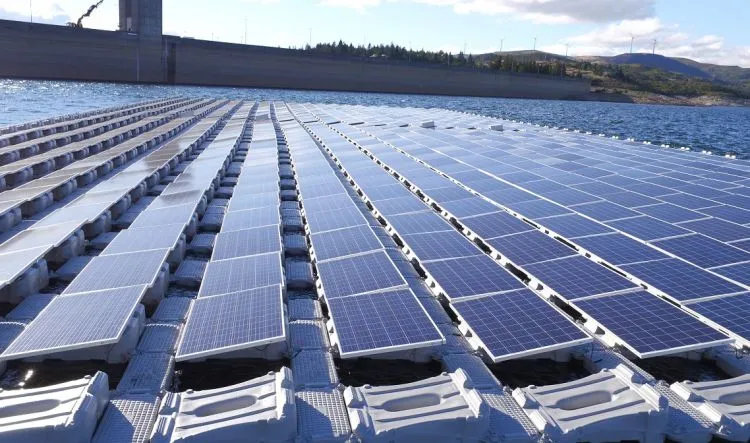Research study locates potential for colocating floating solar with hydropower in Africa
- Hydropower plants across Africa might double their capability if just 1% of their storage tanks are utilized to set up floating solar projects, new study recommends.

The large-scale roll-out of floating solar at hydropower tanks in the continent can minimize water dissipation, help to please future power needs and enhance strength to environment change without revamping existing infrastructure, according to the research study.
Entitled 'Assessment of floating solar photovoltaics prospective in existing hydropower storage tanks in Africa', the research study claims floating solar (FPV) can complement hydropower production throughout significantly frequent dry durations in Africa, while hydropower supplies a much more flexible procedure to recurring PV output.
The researchers made use of a combination of satellite images and also reservoir data to evaluate floating solar's potential at 146 of Africa's biggest functional hydropower plants as of 2016.
Despite its standing as the continent with the most plentiful solar resources, Africa is said to have an installed PV ability of simply 5GW, less than 1% of the worldwide total. In regards to FPV growths, South Africa's first such project was completed in 2019 and also had a capability of 60kW, while German business Droege Energy revealed strategies the same year for a 20MW floating solar plant in Malawi.
While land availability for renewables release is not a significant difficulty in Africa, the report claims FPV systems have additional benefits that concern Africa: boosted effectiveness thanks to the cooling result of water, evaporation decrease, improvement of water quality by protecting against algae development and a reduced effect of dust.
The report notes that FPV projects normally include higher expenses, partially because of operation and also upkeep aspects, the additional proficiency needed as well as boosted soft expenses, such as licensing as well as funding. Nonetheless, colocation of floating solar with hydro plants implies that transmission infrastructure is in area, removing some building expenses related to attaching to the grid.
A report released last year by Fitch Solutions located that dropping prices, a series of successful pilot projects and also a far better understanding of the advantages are resulting in an expanding passion in FPV globally. The working as a consultant forecasts virtually 10GW of floating solar capacity will be set up in the following five years, with Asia dominating the modern technology's project pipeline.
Also read

